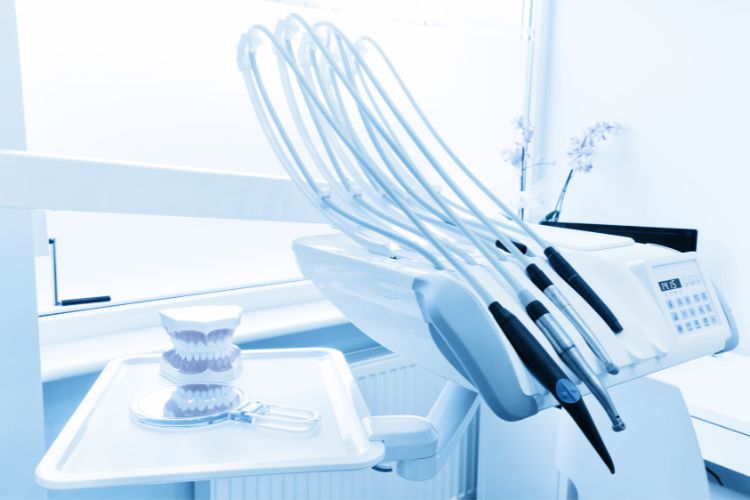Essential Tips for Handling a Dental Emergency
How to Handle Dental Emergencies with These Essential Tips
When faced with a dental emergency, it is essential to remain calm and act quickly. Knowing the steps that you should take initially can help ease your anxiety in the moment and give you confidence as you navigate through the situation. Our team at College Hill Dental Group has years of experience dealing with countless dental emergencies, so we are here to provide some tips on how to handle an urgent case or crisis when it comes to your oral health. By following these essential tips for handling a dental emergency, you will be able to come out of this unsettling time feeling secure that no damage was done and that your well-being remains safely intact.

Stay Calm. Take a few deep breaths and try to remain as calm as possible.
When faced with a stressful situation, it can be all too easy to let our emotions take control. However, it’s important to remain calm in order to make clear-headed decisions and avoid making the situation worse. One effective way to achieve this is to take a few deep breaths and try to clear your mind of any distractions. This can help to slow down your heart rate and reduce any tension you may be feeling. So if you find yourself feeling overwhelmed or stressed out, take a moment to breathe deeply and focus on remaining as calm as possible. You’ll be amazed at how much more in control you’ll feel.
Call Your Dentist Immediately. Reach out to your dentist ASAP to explain your situation and see if they are available for an emergency appointment.
Taking care of our oral health is essential. However, some dental emergencies are inevitable, and we must act quickly to prevent potential complications. If you are experiencing severe tooth pain, a fractured or knocked-out tooth, or bleeding gums, you should contact your dentist immediately. It’s crucial to describe your situation to your dentist and inquire about emergency appointments. Many dental offices accommodate patients who require urgent care, and your dentist can advise you on the best course of action. So, if you’re experiencing a dental emergency, don’t hesitate to reach out to your dentist as soon as possible.
Follow Instructions From Your Dentist Promptly. Should your dentist give you any advice or instructions, be sure to follow them as soon as possible.
It is crucial to follow instructions from your dentist promptly. Your dentist provides you with guidance to maintain your oral health and prevent dental issues from occurring. Ignoring their advice could lead to serious dental problems and costly procedures. Delaying treatment or failing to follow-up on recommended instructions can also slow down your healing process and potentially result in complications. It is highly recommended that you take any advice or instructions from your dentist seriously and follow them as soon as possible. By doing so, you’ll be taking an important step towards optimal dental health and overall wellbeing.
Treat Discomfort With Over-The-Counter Medication If Necessary. If you experience any discomfort, over-the-counter painkillers can help relieve your symptoms temporarily until you can see the dentist for further treatment.
We all know that experiencing discomfort can be an unpleasant and distracting experience. Thankfully, over-the-counter medication can help alleviate those symptoms until we can seek further treatment. When it comes to dental discomfort, it’s important to address the issue promptly. Over-the-counter painkillers are a readily available and affordable option for managing any pain or discomfort you may be experiencing. As a dental professional, I recommend following the instructions provided on the medication’s packaging and, while relying on it only as a temporary solution, scheduling an appointment with your dentist as soon as possible for a more comprehensive treatment plan. Remember, your dental health is important and seeking prompt care is crucial for maintaining a healthy and happy smile.
Avoid Eating Or Drinking Until You Receive Treatment From Your Dentist To Prevent Further Damage To The Tooth/Gum Area In Question
If you are experiencing tooth or gum pain, it can be tempting to reach for pain medication or a cool glass of water to provide relief. However, it is crucial to avoid eating or drinking until you receive treatment from your dentist. Consuming food or drink can aggravate the affected area and cause further damage, making treatment more complex and potentially leading to more pain and discomfort. Waiting to eat or drink until you have received professional care will help ensure that your tooth or gum issue is addressed effectively, improving your overall oral health and well-being. Remember, your dentist is there to help and provide the necessary treatment to alleviate any discomfort and restore your optimal dental health.
Clean The Affected Area Gently With Warm Water And Salt Solution To Provide Soothing Relief Until You Can See The Dentist For Treatment
When faced with dental pain or swelling, it’s important to take swift action before things escalate. Cleaning the affected area gently with warm water and salt solution can offer some relief in the meantime before you’re able to see a dentist for treatment. Salt has natural anti-inflammatory properties that can help to soothe sore gums and reduce swelling. However, it’s crucial to be gentle when cleaning the area to avoid causing further irritation. Using a soft-bristled toothbrush or a cotton pad dipped in the solution can be effective methods. Remember, while this DIY remedy can alleviate some discomfort, it’s always best to seek dental care from a professional for a lasting solution.
Contact Us Today
In summary, experiencing a dental emergency can be frightening, but the best thing you can do is act quickly. To ensure that your health and well-being is preserved, stay calm while calling your dentist to book an emergency appointment. Make sure you follow all the instructions they give promptly, and take any needed medication to ease any pain or discomfort. You should also seek to avoid eating or drinking until the situation has been treated by the dentist, and clean the affected area gently with warm water and salt if you are able to. Ultimately, it’s important to remember that in these matters it’s always best to err on the side of caution and get help as soon as possible. If you are currently experiencing a dental emergency, please contact us today at College Hill Dental Group so we can schedule an appointment with one of our dentists right away!











